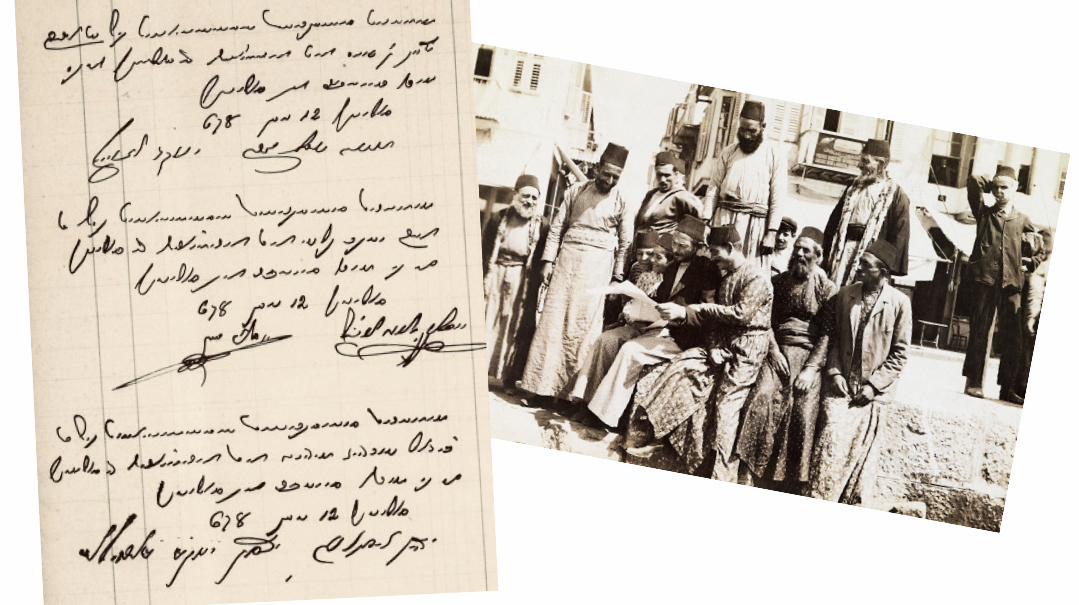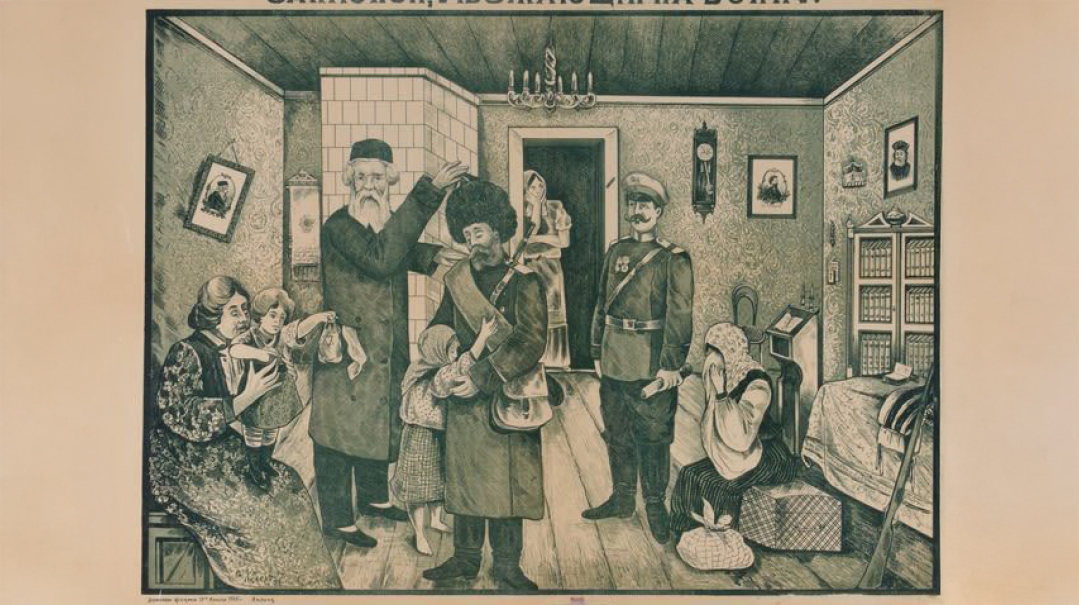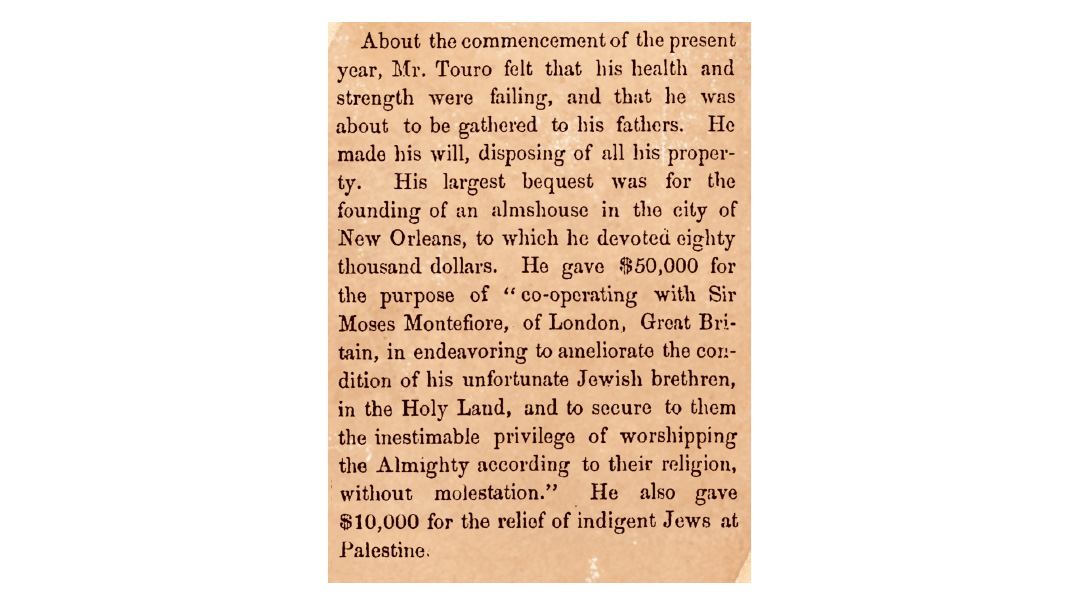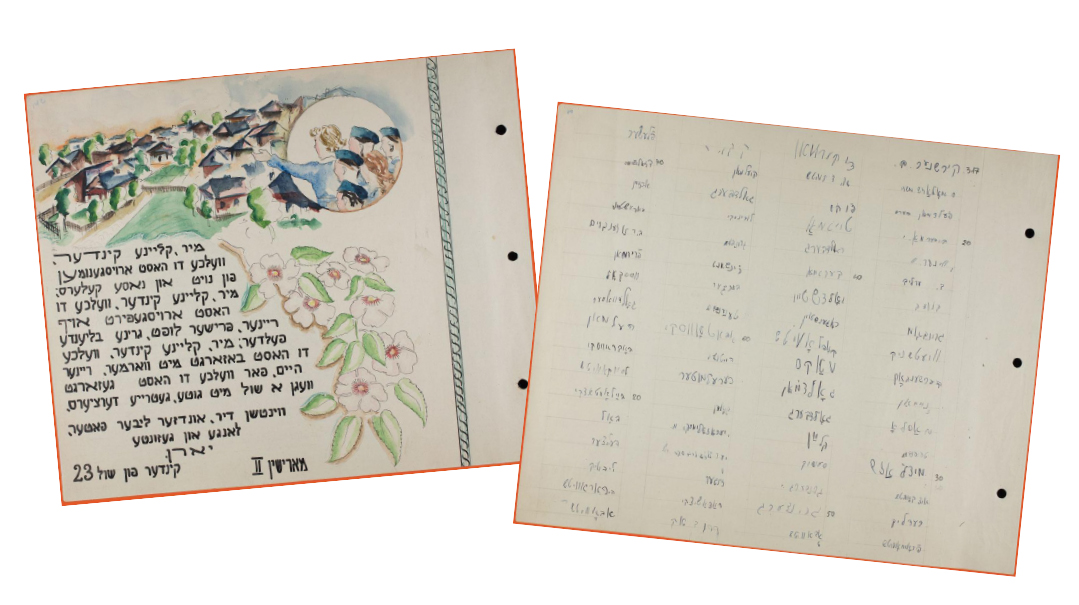From Oppression to Opportunity
| July 16, 2024The Rebbe Rayatz shared ideas for making order out of chaos on American shores
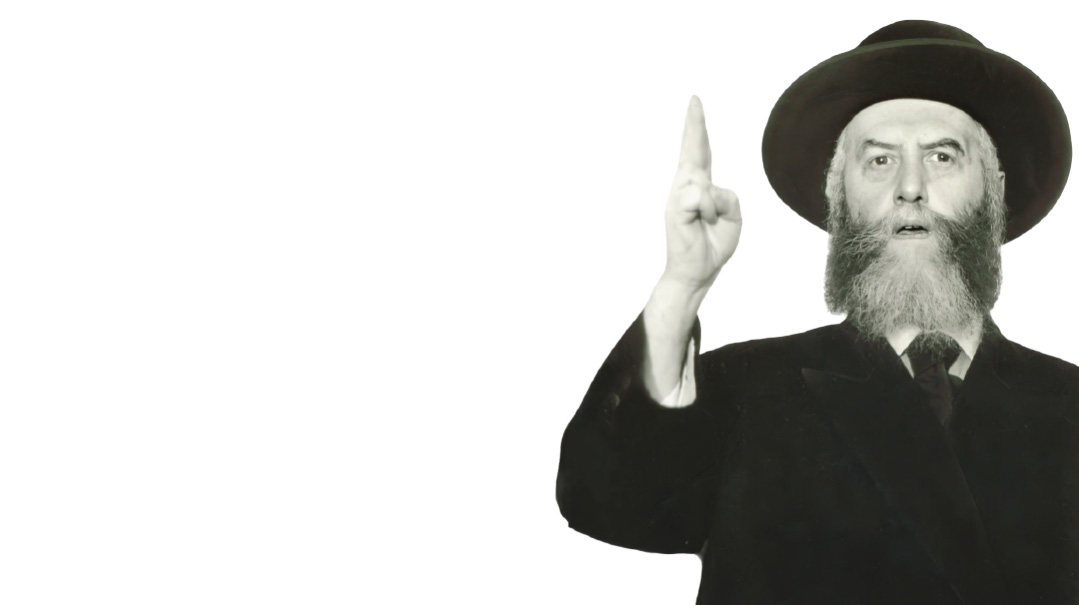
Location: New York, NY
Document: Jewish Forum
Time: 1930
After his imprisonment in the Soviet Union and his exile from his beloved chassidim behind the Iron Curtain, Rav Yosef Yitzchak Schneerson, the sixth Lubavitch Rebbe, didn't fall into despair. With indefatigable energy, he left for the United States, to help those left behind, and to galvanize Jews there to forge a Torah society in the New World.
The return of Rabbi Schneersohn to America (he has recently left the country, after less than a year’s sojourn) would be a gain to the spiritual strength of Judaism here, and would strengthen the ties between the Jewries on both sides of the Atlantic.
—Isaac Rosengarten, Jewish Forum, August 30, 1930
Following the Bolsheviks’ rise to power and the establishment of the Soviet Union, Rav Yosef Yitzchak Schneersohn, the sixth Rebbe of Chabad-Lubavitch, known as the Rebbe Rayatz and the Frierdiker Rebbe, valiantly tried to keep the flame of Yiddishkeit and chassidus alive under increasingly adverse conditions.
In 1924, he moved his court from Rostov to Leningrad. Through a sophisticated network of personal emissaries and dedicated chassidim, he maintained clandestine religious schools and Tomchei Temimim yeshivos, as well as shuls, mikvaos, and availability of kosher food. The Joint Distribution Committee transferred funds to the Rebbe that he used to help many individuals and communities survive the Communists’ draconian antireligious measures.
The Rebbe Rayatz’s central leadership role didn’t go unnoticed by the government. The secret police raided his home at midnight in June 1927. The Rebbe, his son-in-law Rav Shmaryahu Gourary, and shortly thereafter his secretary Rav Chaim Lieberman were arrested. With his life at risk, an international outcry led to the Rebbe’s release on 12 Tammuz from prison, and his return to Leningrad.
But under constant police surveillance, his position became untenable. Again with the assistance of an international coalition of Jewish leaders, organizations, and politicians, the Frierdiker Rebbe was permitted to exit the Soviet Union in October 1927. Settling in Riga, Latvia, he attempted to lead and manage the affairs of his followers from across the border.
In 1929, the Rayatz embarked on a long journey, and in the summer he became the first Lubavitcher Rebbe to visit Eretz Yisrael. He then continued through Germany and France, before crossing the Atlantic for a nearly yearlong visit to the United States. The goal of his visit was ostensibly to raise funds for Soviet Jewry and his trapped chassidim, while also engaging in prodigious efforts to strengthen Yiddishkeit in the country, and also gauging the possibility of permanently moving his court to America.
Hailed as a great chassidic leader who had defied the Soviets, he was greeted by Jewish communities around the country. He was hosted by mayors, politicians, and many prominent members of general society, and even gained an audience with President Herbert Hoover at the White House. A prime focus of his trip was to revive the spirit of Jewish observance in an overwhelmingly secular and materialistic landscape. He initiated many projects to further Torah education, Shabbos observance, and taharas hamishpachah over the course of his visit.
In order to get his message out to the general public, he granted interviews to members of the media. The editor of the Jewish Forum, Isaac Rosengarten, was granted this privilege and shared his fascinating conversation with the Rebbe with his readers.
The conversation covered the gamut of American Jewish life, and the Rebbe shared his keen observations as to where and how Torah observance could and should improve in this country. He discussed at great length the need to increase Torah study, Torah education for the youth as well as the adults, even the basic study of Hebrew, the role of the rabbinate in America, and various other topics relating to Torah observance in the United States. He pointed out the great strides made by existing Orthodox organizations in this regard, and encouraged them in their efforts.
(Authors' Note: To maintain the authenticity of this remarkable conversation, we are sharing the complete article in its original form.)
Fundamentals and Organization
(An interview with the “Lubavitcher Rebbe,” Rabbi Joseph Isaac Schneersohn)
By Isaac Rosengarten
To salvage the disrupted house of Israel, physically disrupted Eastern Europe, spiritually disrupted in America during these troublous post-war days, requires the ability of an unusual type of personage. I heard much of the inspiration of the “Lubawitcher Rebbe,” of what he suffered in imprisonment and exile for his courageous efforts in organizing the Jewish school system after Russian authorities did their utmost to destroy.
And I learned something of the “Habad” school of Hasidism, whose followers are spread in every large Jewish community and of which school Rabbi Joseph Isaac Schneersohn is the head. I wished personally to meet this great leader of Israel and learn more of his outlook on life and the reason for the great hold which he has acquired on the imagination and energy of the Jews of America in the short time that he has been here. In the interview with him of more than an hour, I obtained some impressions which I felt the readers of The Jewish Forum would be pleased to have conveyed to them. We spoke about the fundamentals of Judaism upon which Jewish life depends for its existence. We spoke about the difficulties in the matter of Sabbath observance, without which Judaism is doomed to disappear.
He told me about an experience of his in Riga, where he noticed that there was Sabbath violation on a large scale. He invited a gentleman who was not a Sabbath observer to form a Sabbath observance society, to consist of those who likewise did not observe the Sabbath. This he did not consider possible. Later he came back for advice three times successively with reference to different types of business ventures.
He followed the advice of the Rabbi, who then spoke to him in the following vein: “Is it not strange that you act according to my advice in lines of business that I personally know nothing about: but you have no confidence in me in a matter concerning which I am certain you will meet with success and derive happiness?”
Thus the merchant was persuaded to form a Sabbath observing society and labored. until a bank was founded by this “Hevrath Shomre Shabbath” — Society of Sabbath Observers. The Rabbi wished to stress the thought that one person can accomplish much if he will but make the effort.
I was anxious to get the Rabbi’s views on the method of bringing order out of chaos in the organizational life of the Jews in this country. I was happy to learn that we agreed on this subject throughout, both as to diagnosis and cure.
Rabbi Schneersohn was of the opinion that much confusion arises when all the work of all the phases of Judaism falls on one man. There seems to be too much desire to accomplish big things at one time in every direction. Leaders aim to do everything on a great scale. The problem intoxicates because of its immensity. Work of this kind, as a rule, however, must be begun on a small scale, rather than, as seems to be in vogue here, to have the building first set up and the work of the institution planned afterwards. They set up the cornerstone and the marble columns while overlooking the fact that so long as these things are not in their right places, the structure is not a building.
One group of people should give attention to one problem at a time, he went on to suggest. In this large Jewish community of Greater New York, all the fundamentals of Judaism should not be bunched together for organization purposes. The problem of education is a huge task. Those interested in this problem should come together for this one purpose, and not allow other phases of Judaism to occupy their attention at the same time.
For work on behalf of kashruth, likewise a special committee should be formed, and all those interested should be given an opportunity to cooperate for the solution of the problems of kashruth, which seem to be so many and so complex in this community. The same method should be applied for the organization of work for Shabbath, and likewise for taharath hamishpacha.
To strengthen this last mentioned and much neglected phase of Jewish religious life, a special organization should be formed which would divide its work into two parts: the educational and propaganda work to be done by women only, the fund raising chiefly by the men. But only the women are to be in the leadership of this phase of activity. In the main, in the work of organizing the various activities on behalf of Judaism in America, neither the old men nor the young can render the service most needed, but chiefly those between the ages of thirty and forty-five who have had some experience in the work that they undertake to lead, beruah ha-Torah, “in the spirit of the Torah.”
“How does the attitude towards Torah in this country,” I asked the Rabbi, “compare with that in the old country?”
It seemed strange to him that people do not realize the grace of G-d in allowing them the freedom which they possess in great measure in this country. After spending nineteen and one-half days in prison in a room four and one-half ells by two and one-half, without an opportunity to look into a “sefer,” he assured me that when he emerged from those narrow walls, he could appreciate the gift of freedom that G-d had granted him; and he wondered at the great freedom here and the opportunities it gives, the opportunities which, alas, are everywhere neglected.
In the old country, who would not grasp every opportunity possible to study? In this country, comparatively little is considered worthwhile outside of laboring for the dollar, on which so much unnecessary time is spent. The average person in Europe each day studies a “blatt,” a page of Torah, but here, what manufacturer even thinks of it?
That this is a rather strange situation, one can realize by comparing people today with those of the “Tannaim and Amoraim” (in the days of the development of the Mishnah and the Gemarah). In those days the ignorant, the burim, had more avodath massah, “heavy labor,” to do. Today there are no burim, and there is no less “emunah” (faith) than in former days. People are accustomed more to avodath hamoach, “brain work.”
This is why it is the more so surprising that there is not greater attachment here to the study of Torah. In this country, if the father has not the power to explain the reason for religious observances to his children, he gradually follows the ways of the children — even though his emunah, “faith,” does not become weaker.
In Europe, everyone feels that he himself must do the utmost that can be done for Jewish education, regardless of cost to the material welfare of the individual. In America, they devote themselves chiefly to things material and a very small percentage of what can be done is done for Jewish education. Thousands of children everywhere have no place where to learn; funds fail for the provision of teachers who can provide a deep enough knowledge of Judaism to make it last at least in the minds and hearts of the children.
The attitude towards learning is very superficial. One is expected to know something of everything but a lot of nothing. He felt that too much consideration was being given to secular learning and too little thought to the “chinuch hayashan,” “education in ancient learning” Torah. He does not understand the why and the wherefore of the mixture of “Torah and chachmah,” religious and secular learning. His conception of a yeshivah is, as in Europe, one which devotes itself completely to Torah study.
“I shall be glad to have some of your views on education,” I suggested.
One of the things that is not often enough borne in mind, he intimated, is that together with the study of Torah, a child should be taught an umnuth, some occupation or handicraft. Emphasis on this phase of education often trains the worker, in all fields and phases of life. Our rabbis of old seem to have given more attention to this than we do today, even in industrial America.
There must be something wrong here also with the method of teaching the very elements of Hebrew. In his childhood, he continued, he was not merely taught the alphabet and the vowel signs. He was also simultaneously taught the sanctity of those letters and of the notations connected with them, in complete passages of the Bible. Each letter was attached to an idea intimately connected with words that convey some of the big ideas of the religion. The content of study was the same as in olden times. Nine Moseses did not have more mitzvoth than one ordinary person today: except that Moses, our teacher, had a deeper grasp of those mitzvoth.
No one in Jewish life today is greater than the (Torah) teacher; but it is the teacher who considers work as the greatest recommendation. He loves most that person who works for hizuk hayehaduth betaharathah, “the strengthening of Judaism in all its purity” — one who labors for the Torah with respect and reverence, aiming to make it function in life today.
Rabbi Schneersohn went on to speak of the rabbi in America. He believes the rabbi should be distinctive, should not be ashamed to wear his tsitsith, so that people passing by in the street would see them, and know that a representative of religion is in their midst. He thinks, also, that inventory should be taken and a record kept by the rabbi of the number of persons gained over to Sabbath observance, to taharath hamishpacha, to donning of tefilin, etc. He fears it is ignorance among rabbis which keeps them from being sufficiently outspoken of their Judaism.
Rabbi Schneersohn thinks highly of the Young Israel movement and would like to see them receiving every support. His best sympathies, however, are with the religious program of the “Zeire Agudath Israel,” for the reason that the latter does not accept to membership anyone failing to observe the Sabbath, notwithstanding the rule in Young Israel forbidding the election to office of any member who is not a Sabbath observer. The highest pinnacle in Judaism is “dath,” life according to religious law. He will therefore cooperate with every movement, whether it be Mizrachi or Agudath Israel, to the extent that they occupy themselves with “Torah Umitsvoth” — Torah study and the observance of the religious law. He does not consider himself a leader in the political sense, but a worker in the ranks of Judaism.
It was a rare inspiration to meet this spiritual leader, to gain from his writings an idea of the depth with which he treats psychological questions, to note his suavity and simplicity, and to feel his love for all mankind. Rabbi Schneersohn is always ready to express gratitude for any service rendered, particularly to his people, as notably when received by President Hoover, to whom he expressed the appreciation of the Jew for the great freedom he enjoys in America and this nation’s high feel his love for all mankind.
This Thursday and Friday, the 12th and 13th of Tammuz, are Chag HaGeulah, which mark the 97th anniversary of the Frierdiker Rebbe’s release from prison.
(Originally featured in Mishpacha, Issue 1020)
Oops! We could not locate your form.

